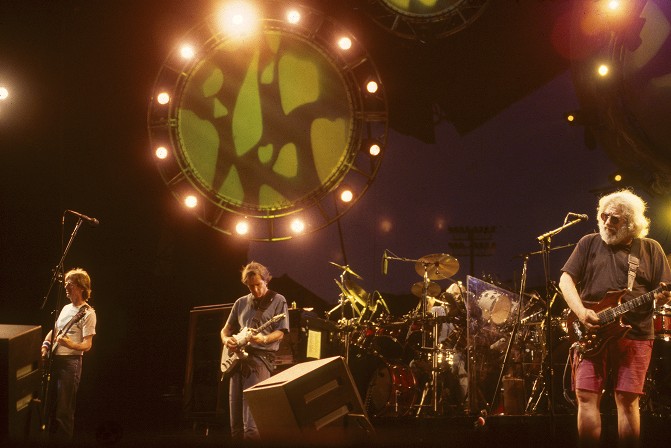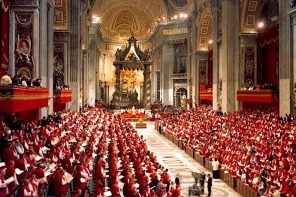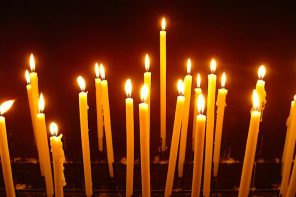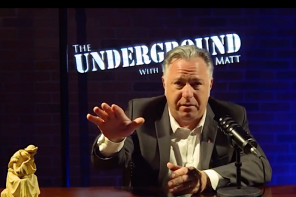~Music Promoter Bill Graham, April 29, 1971
One sentence, spoken by an anonymous “usher” to a maverick producer who then riffed to boisterous audience at the Fillmore East—all the words spoken then say more than any of us digitally-connected folk will be able to say. But as Bill Graham tells it, “you can use sentences and sentences,” so we might as well try.
I nominate the Grateful Dead as a singular-categorical phenomenon, and I further declare that the singular category adhering to this phenomenon is replete-ness.
We begin with the Grateful Dead, as Bill Graham affirmed, as an environment, and an environment replenishes the curious and courageous mind with meaning, being replete and all. So we approach the Dead with an intellectual thirst for the whole.
To that end: we can explore the Dead through language, we can explore the Dead as ethos, and we can engage the Dead via participation.
The Dead Metaphor
Mystic poets renew culture through words.
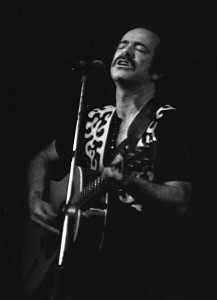
Robert Hunter, one of the Dead’s chief lyricists, plays a solo show in Philadelphia in the 1980s. Photo by David Saddler via flickr
Robert Hunter, the lyricist who worked on almost all the songs on American Beauty, is a poet who has translated Rainer Maria Rilke from the German (the Duino Elegies). Rilke, a contemporary of Nietzsche, also wrote The Book of Hours, a description of circadian perception of time as message, based on rhythms of prayer.
Like prophets, a poet’s use of language can subvert popular assumptions, reified or dead assumptions. Influenced by Rilke, Hunter convenes American idioms into dense, precise, equivocations. One of Hunter’s most mystical Dead songs is “Attics of my Life”—an expression of apophatic mysticism (knowing by not-knowing/God as darkness).
Other songs, such as “Candyman,” are written in the idiom of the outsider, the loser, or the feared. In both the mystical elevation of the senses and the base sensuality of being, we are invited to enter a world that exists beyond the status-quo, a world at once captivating and sinister.
Poetry dismantles the strictures of conventions. The name of the band—at once grateful and dead— is such a combination of words. A metaphor brings new insights when two seemingly paradoxical categories are brought together, e.g. rock ‘n’ roll band and environment (ushered in above).
At the height of secular modernity, when Catholics were opening the windows of Vatican II and American theologians were delving into what was known as the gospel of Christian Atheism, a California dance band re-named themselves, and the Warlocks became the Grateful Dead.
The name was intended to disturb. Language employed as undertow to wash away cultural carcinogens: the strangling of mystery through control, convenience and predictability. Civilization as technique and death-denying would scoff at this nonsensical combination: grateful dead.
And yet those who are grateful and dead, or grateful for the Dead, or even those who celebrate with the Dead, begin a restoration toward a more integrated, more whole sensibility.
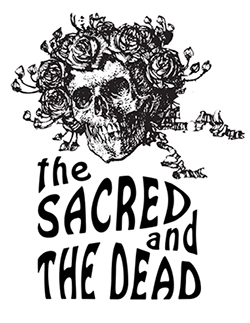
A special series on religion and culture produced in collaboration with the Office of Religious Life at the University of Southern California
Religious consciousness, whether Navajo sand-painting or Catholic Mass, perceives and embraces the presence of the Dead, and does so in ritual.
In the 1960s, the new consciousness from California was opening up, ripping the seams of modernity by way of sound, and pursuing what had been the norm of civilization for 1700 years prior to the modern period— an openness to mystery and the transcendent, consulting the spirits and exorcising the demons of the times: individualism, instrumental reason, and conformity.
The corporate machinery of modernity persists in its seduction, as has its attendant impulse to war and violence. Perhaps we need to continue to explore linguistic alternatives for this very reason, since we know that the Environment is suffering a slow death— and this culture along with it.
Just as we are infused with doses of gratitude and joy in their shows, the Dead ask us to risk a life of authenticity in an age of thoughtless consumption. For through the Dead, in their insistence on re-visiting the American past honestly—and exploring acoustically the disorder of the present—we get a very real turn to Mystery.
When I Got Mine and You Got Yours
Embedded within American experience is the almost absurd agreement that in order to fulfill our desires, we must lie. That’s the deal.
As Neil Young said, “they give you this, but you pay for that.”
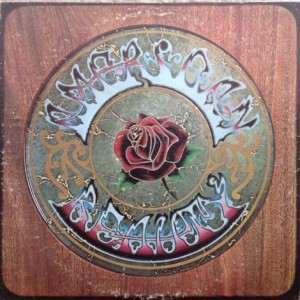 The cover of American Beauty, as is well known by students of the Dead, represents this duplicity. The letters (signs) can be read two ways: they represent both American Beauty and American Reality.
The cover of American Beauty, as is well known by students of the Dead, represents this duplicity. The letters (signs) can be read two ways: they represent both American Beauty and American Reality.
In western thought, beauty and reality are of a piece since the good, the true, and the beautiful inform and form each other.
But beauty can deceive, money talks, and power attracts.
The Dead understand and critique this duplicity. In order to understand it they conjure American figures who exemplify this contradiction, a sort of courageous deceit. Jack Straw and his violent side-kick Shannon, the Me of “Me and my Uncle.”
And to my mind the most illuminating expression of this is the tongue-in-cheek “U.S. Blues” in which Uncle Sam joyfully explains his audacious and deceptive allure. Such duplicity is emboldened through the art of seduction. A candyman is a seducer, and the song on American Beauty is very clear about this.
One might compare Sammy Davis Jr.’s 1972 hit “Candyman” with the Dead’s version. Davis’ take is all sweetness and light and morally upright—even intimating that the Candyman is somehow divine. The Dead’s song is about the dark side of seduction; its pull, risk and invigorating reality.
Their song begins slowly and teasingly by repeating the same simple guitar riff four times—the sound of burlesque.
This slow intro yields an intimacy. The seducer is about to go to work:
“Come all you pretty women,
with your hair a hangin down,
open up your window
cause the Candyman’s in town…”
The song is an attempt to tradition a blues idiom, and the realities and truths the blues explore. The Candyman has learned to talk “jive,” the language of duplicity and manipulation. The ethos of the U.S. government, business, and “underground” can be interpreted as an evolving habit and an exercise in seduction. The U.S.’s prosperity, born of slave labor, the plantation owner dividing his slaves by way of hierarchy. The U.S. government splicing up Native land into reservations: “Plus the Great Chief in Washington promises your tribe $1 million.”
The losers, criminals, and out-casts have learned to survive by imitating the powers that be. Duplicity, seduction, and addiction are the American reality.
“Come on boys and gamble….I’ll take your money home.”
In his lyrics, Hunter alerts us, however, to the danger. Like the ancient Greek choristers who clue the audience into what’s really going on, the rest of the singers in the band join Garcia on the chorus of “Candyman”:
“Look out, Look out, the Candyman,
Here he come and he’s gone again,
Pretty lady aint got no friend til the
Candyman comes round again.”
Here is a call to watch, to take care—a critical realism about the dangers of seduction.
The Kids They Dance
The third way to engage the Grateful Dead is to participate.
Both Hunter and John Perry Barlow, the primary lyricists for the band, implicate the Dead and their fans in the enveloping event known as a live show.
This strategy has grown out of a phenomenon; that is, the appearance of an organic movement which seemed to take on a life of its own. I suppose all bands with a following do implicate their followers. And perhaps the Dead have presented the longest-standing, oddest, and most enriching alternative to more conventional ways of nurturing an audience.
In the midst of confusing times, when the powers will have their way and get their revenge, when the rich retreat to their empty homes, “the kids they dance, they shake their bones.” This lyric (written by Barlow) from “Throwing Stones” identifies Deadheads implicates them in a very vivid way as the “show” is happening.
The message: festivity and celebration can never be undermined by a utilitarian ethos or draconian politics.
Part of the celebration, however, involves a recognition that the show is an example of American seduction. Hunter says in “U.S. Blues,” as if answering our question:
“I’m Uncle Sam, that’s who I am, been hiding out, in a Rock and Roll Band.”
All this critical awareness of duplicity, you see, is happening now as you and I become mesmerized by the environment. And at the end of “Candyman,” Hunter implicates the band and the audience: the seducer is the show and the seduced are all the rest.
“If you’ve got a dollar boys, lay it on the line
Hand me my old guitar, pass the whiskey round
Won’t you tell everybody you meet
That the Candyman’s in town”
This is the grateful seduction, sometimes for good, many times for ill, but real any way you slice it.
Two more times for the Dead to, in the words of bassist Phil Lesh, “suck the last dance right out of you…”
How much are those tickets to the very last gigs at Soldier Field this weekend going for?
For real? You got to be kidding me! I could feed a family for a month for that price.
But one can’t put a price on American Beauty. The Spirit is on the move in this country, so I laid my dollar down.


